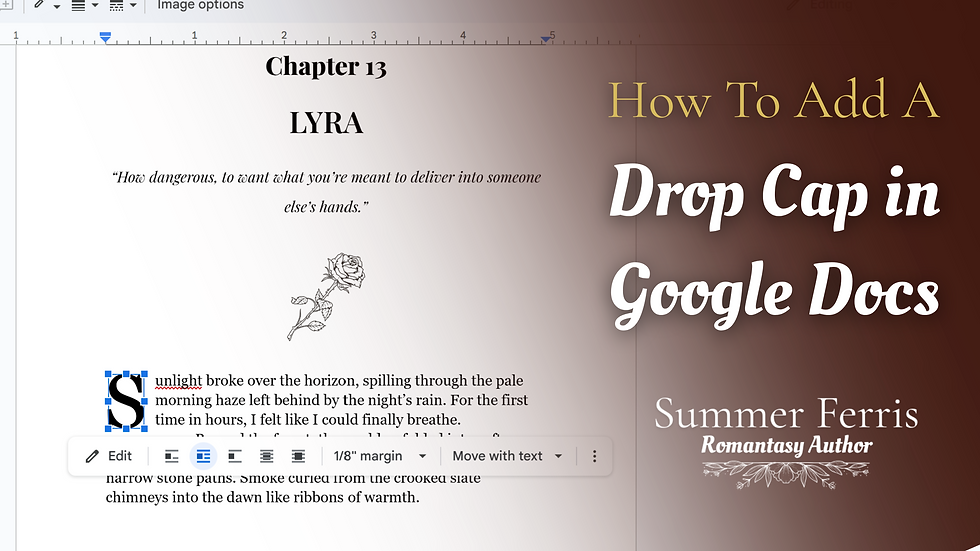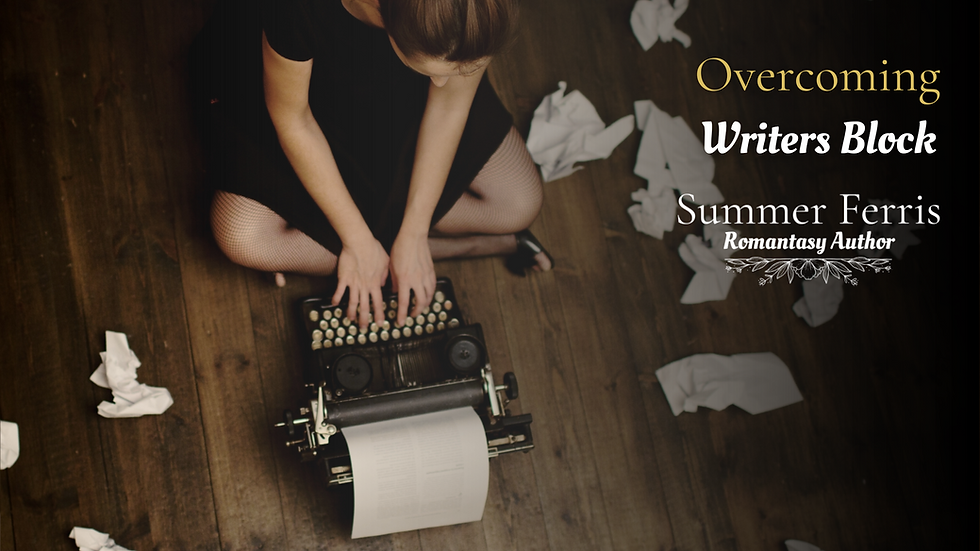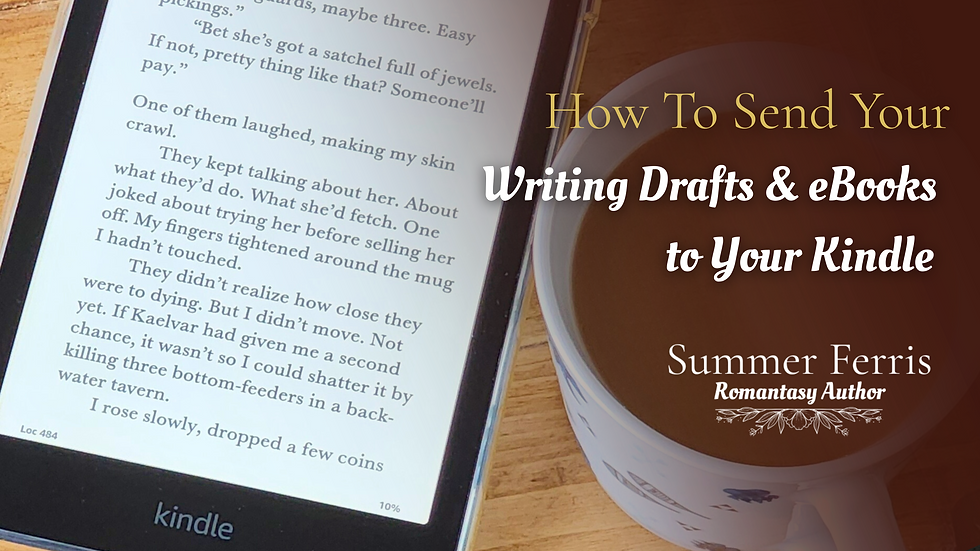6 Things I Learned From My Beta Readers
- Jul 12, 2025
- 4 min read
Updated: Nov 21, 2025

When I first hit send on my manuscript to my beta readers (a group of strangers and a few brave friends), I felt equal parts exhilarated and terrified.
Would they love it? Hate it? Laugh at the wrong parts? Catch a glaring plot hole I’d somehow missed?
Turns out, inviting beta readers into your story world is one of the best decisions you can make as an author—but it’s not always easy.
Here are six things I learned after going through the beta reader process for the first time:
The first thing I learned from my beta readers... not every reader is meant for your story
One beta reader loved the slow-burn tension and emotional buildup. Another said it didn’t feel slow enough and read more like insta-love. That feedback hit a nerve because deep down, I already had doubts about the pacing of the romance before I even sent the manuscript off. Their reaction confirmed what I suspected: I needed to dig deeper. So I slowed things down, added more emotional layers, and let the connection between my characters grow more organically. It made the entire story stronger.
Lesson: Pay attention to the feedback that echoes your gut. It’s often pointing you toward exactly where your story needs more heart.
You’re too close to the story to see everything
There were scenes I thought were emotionally loaded until a beta reader gently informed me that the villain just seems like a bad dude for no reason. Oof. It stung a little, but they were right. He had zero motivation, and as much as I love a Disney villain, it didn't work for the story. I’d skipped over emotional fallout and left key dynamics underdeveloped.
And then there were the blind spots—repetition, redundancies, overused metaphors. For example, I used the word “spark” way too much. Everything was sparking—looks, emotions, tension—and I couldn’t see it until one of my amazing beta readers (thank you, Kelly!) pointed it out.
Lesson: Beta readers are your reality check. They help you bridge the gap between what you know and what the reader experiences, and catch things your brain has learned to skim right over.
Your characters might not be behaving as you think they are
One reader said, “I love her fire—how she speaks her mind and doesn’t back down.” Another said, “She feels too passive, too forgiving in places where she should be furious.”
Ouch. It was hard to reconcile those opposing takes until I realized both were right. Lyra did have fire, but she's also soft. Unfortunately, I hadn’t balanced it consistently across the chapters. In some scenes, I’d softened her too much, which muddied her arc.
Lesson: Strong characters can still have nuance, but their voice and agency need to stay grounded and intentional. If readers are getting mixed signals, it’s time to sharpen the throughline.
You’ll need thicker skin
Constructive feedback is a gift, but it can still hit hard. Especially when you’ve poured your soul into a scene and someone comments, “This felt a little flat.”
I had to take a breath, resist the urge to defend every choice, and listen.
Lesson: Beta reading is not a personal attack—it’s a collaborative effort to help you tell your story better.
Some feedback will light a fire in your creative soul
Not all beta comments are critical. Some will feel like hugs in text form. One reader sent me a paragraph gushing about the romantic tension in a certain scene, and it made my entire week. Those reactions reminded me why I write in the first place.
Lesson: Beta readers are your early fans, the first people to fall in love with your world.
Not everyone who signs up will follow through
When I first sent out my beta reader sign-up, I was thrilled to get six people on board. But only three responded. And ultimately, just two gave me feedback.
At first, I worried I’d done something wrong. Was the story boring? But I quickly learned this is just part of the process.
Life gets busy, and not every reader is going to be the right fit, even with the best intentions.
Lesson: Always expect a bit of drop-off. It’s not personal. The feedback you do get is far more valuable than chasing the silence of those who ghost you.
The beta reading process challenged me, encouraged me, and ultimately helped me tell a better story. But here’s the truth I had to learn the hard way: you don’t have to implement every piece of feedback.
Beta readers are there to shine a light on your blind spots, but at the end of the day, this is your story. Only you know the heart of it.
So listen with an open mind, reflect with honesty, and then follow your gut. Trust yourself. Your voice matters.
Want to streamline your own beta reader process?
✨ Download my Beta Reader Sign-Up Form—designed specifically for romance and romantasy writers!




Comments